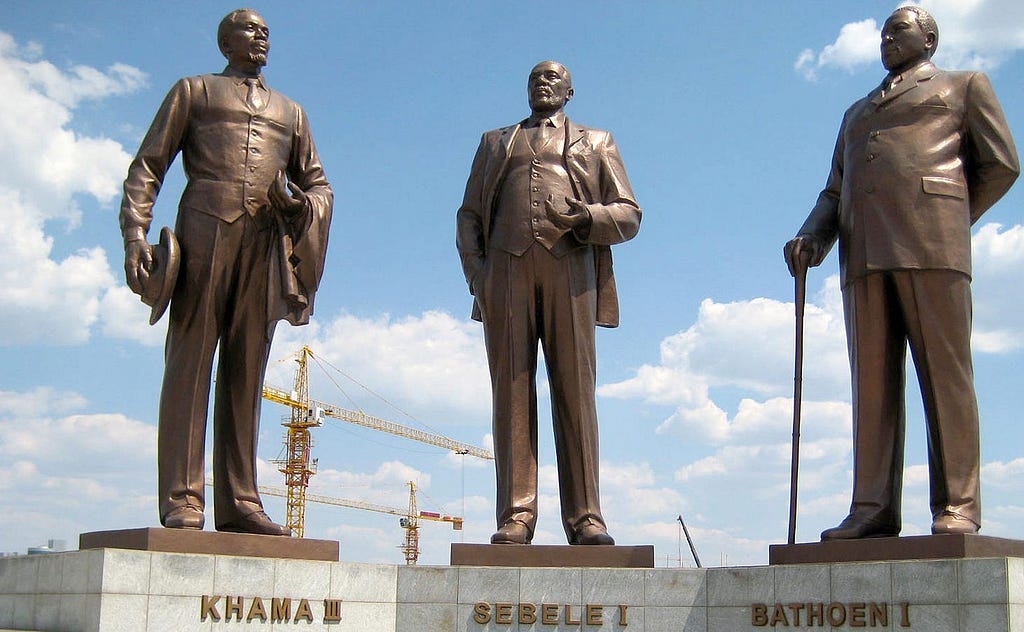What Botswana Can Teach Us About Political Stability
post by Samo Burja · 2019-05-09T18:30:04.588Z · LW · GW · 4 commentsContents
4 comments

US Army Africa/Botswana
From my article first published on Palladium Magazine.
It is hard to find a clearer outlier among developing countries than Botswana, a landlocked African country where 40% of government revenue comes from diamond mining and a quarter of adults are HIV positive. Everything taught by a development economics department would suggest the country is set up for failure. But well-executed succession between presidents, and the resulting stability and good government, has meant success instead.
Botswana is possibly the nicest place in Africa — it is quieter and more stable than, say, Greece. In the entire period since independence, Botswana has not suffered devastating civil wars like those in the Congo or Mozambique, coups such as in Burkina Faso, or ethnic violence and expropriation as seen in Rwanda and Zimbabwe.
The country’s living standards are comparable to Turkey, Mexico, and South Africa. It has also been Sub-Saharan Africa’s fastest growing economy for most of the last half century.
The crucial variable is a sound government making well-informed, long-term choices. A low population density paired with abundant natural resources provides a reasonable standard of living even in the absence of administrative genius or favorable conditions, so long as governance provides stability. Political instability can impede development of physical infrastructure and the business environment, transforming good fundamentals into a bad outcome. See, for example, Kazakhstan compared to Venezuela.
Unfortunately, there are many examples of countries that have tried and failed to achieve good governance in the often chaotic post-colonial context. These countries followed Western advice as closely as they could, drafting legally impeccable constitutions and recruiting well-educated statesmen, but the results have been mixed at best. Botswana’s positive outlier example raises the question of how it has done so well.
Read the rest here.
Read more from Samo Burja here.
4 comments
Comments sorted by top scores.
comment by ryan_b · 2019-05-09T21:38:33.125Z · LW(p) · GW(p)
I like this one the best of your posts so far, chiefly because it was anchored with an example, and simultaneously illustrated the important variable (succession of power) and how it is absent from the usual analysis.
The frame it presents is also an extremely satisfying explanation of American success. In this view the Constitution is primarily a blunt instrument for preventing problems which afflicted European powers up to that time: a Presidency to stop wars of succession; a separation of Church and State to prevent wars of religion; a democracy to provide an outlet for the public other than rebellion. And indeed the US has had much less of these problems than any comparable power, allowing maximum capitalization on the available land and natural resources.
comment by Gordon Seidoh Worley (gworley) · 2019-05-09T19:25:10.783Z · LW(p) · GW(p)
This makes an interesting case I don't often hear, which is that political stability, and especially stable succession, can overcome many other conditions that would tend to lead to general instability and lack of development. To me this further seems to suggest that the underlying factor that's important to development is stability, and other things simply affect the specifics of how development proceeds, while stability is usually (always?) the deciding factor.
Does that fit with what you've seen?
comment by Pattern · 2019-05-17T22:54:51.311Z · LW(p) · GW(p)
This was a good introduction to the article.
Replies from: Samo Burja↑ comment by Samo Burja · 2019-05-22T18:54:58.802Z · LW(p) · GW(p)
Thank you! There are many conflicting recommendations when it comes to writing, but I think that for imparting models articles should open by introducing themselves.